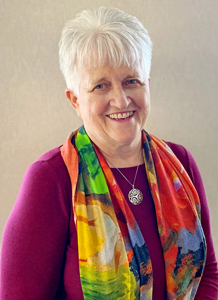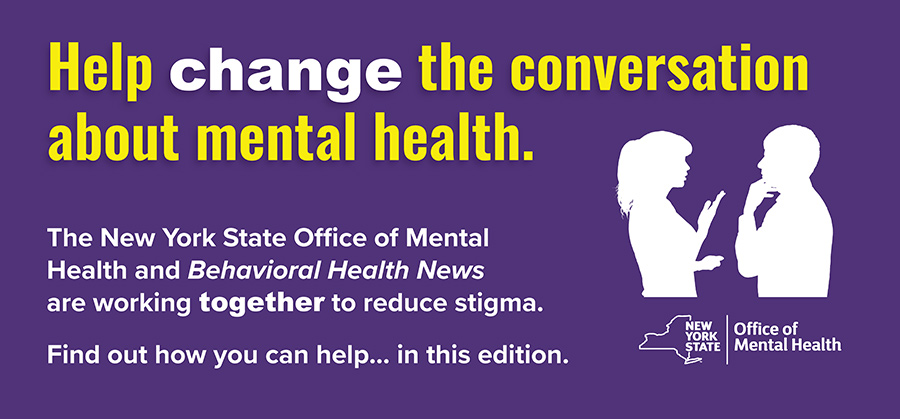We must ensure that individuals living with mental illness have the opportunity to fulfill their hopes and dreams. To do so, all the systems and services we design must support the ability for individuals living with mental illness to thrive in their own community and reach their personal goals. We have to make available opportunities for a full education, employment, social connections, and enriching social life and activities. And we must have available a welcoming continuum of care services that support individuals and families when needed.

Ann Sullivan, MD
Commissioner
NYS Office of Mental Health
Governor Kathy Hochul’s historic, $1 billion plan to strengthen the State’s mental healthcare system provides us with a blueprint as well as the resources to make these goals a reality. From their first experience with mental illness, through navigating their life choices and experiences, each individual needs to be able to learn and thrive and reach their aspirations.
OnTrackNY is a comprehensive program that empowers young people experiencing a first episode of psychosis to understand their experiences and to pursue their goals for school, work, and relationships. The program includes a diverse team of professionals in health, mental health, and peer support. The impact of this program can be illustrated by sharing feedback received by recent recipients.
A young man who we’ll call Robert (which is not his real name) experienced a psychotic episode and hid his illness from others because he felt no one would truly understand what he was going through. But when he began to work with the OnTrackNY program, he met a Peer Specialist who took the time to learn about Robert’s goals and aspirations as well as the challenges he faced. Through their relationship, Robert realized he “…could live a life that was worthwhile… and I was a person who still mattered.” Robert is now working as a Peer Specialist, helping others make their way to recovery.
The program also helped change the life of a young woman who we will call Susan, who was diagnosed with schizophrenia when she was 19 years old, which led to multiple hospitalizations. She did not trust her caregivers and felt the delusions she experienced were reality. OnTrackNY empowered her and put her “at the forefront” of her own care, she said. “Today, I have a lot more hope that I can live a full life even if things are hard. My future is in my control.”
In addition to expanding OnTrackNY, Governor Hochul’s budget dramatically increases a host of services that enable individuals to thrive in the community. There will be 26 more Certified Community Behavioral Health Clinics (CCBHCs) across the state that provide a full continuum of ambulatory mental health services and outreach, 42 more Assertive Community Treatment (ACT) teams providing community-based care serving an additional 2500 individuals including adults and youth, 50 Critical Time Intervention (CTI)teams to support individuals who may be transitioning from more intensive inpatient or emergency department care, additional INSET (Intensive and Sustained Engagement Teams) teams to provide peer support for individuals with serious challenges, HBCI( Home Based Crisis Intervention) and ACT teams for youth and much more!
But all these services can only be effective if someone has a safe place to sleep and live. This Budget adds 3500 units of supportive housing, including housing first and transitional housing, designed to meet individuals with multiple complex issues and provide the supports needed to thrive.
Throughout these services peer specialists are critical to success. Peer specialists, who play such an important role in OnTrackNY as well as the Safe Options Support (SOS) Teams focusing on individuals who are homeless, and in many other programs, are integral components in the continuum of care. Their influence and importance in the mental healthcare field is crucial for success.
Peer Professionals share their own experiences with mental health challenges, emotional distress, and trauma, as well as their personal recovery. These experiences, combined with their first-hand knowledge of the mental healthcare system, put them in a unique position to offer support and help others on the journey to recovery. Multiple national research studies have shown that peer support, by building trusting relationships, can help reach, engage, and connect with people who may have had difficulty connecting to traditional mental health services.
And While Peer Professionals support others on the path to recovery, they also teach life skills and help people experiencing mental health challenges to lead successful and meaningful lives in the community. Peers understand their clients and the challenges they are facing. They demonstrate that hope and recovery are very real possibilities for people living with mental illness. This strong, positive relationship and encouragement leads to increased collaborative engagement in services, greater life satisfaction, and the reduced need for hospitalization.
The ability to build a strong relationship is at the core of the work being done by the Safe Options Support (SOS) Teams created last year under the Governor’s direction. These teams are working with people who are living with mental illness and are also experiencing homelessness and living on the street and in the NYC subway system.
Individuals living on the street are often very difficult to engage, and the process of building rapport and trust can take time and multiple contacts. The SOS teams, which include licensed clinicians, care managers and peer specialists, help connect the client to treatment and support services, as well as temporary and permanent housing options.
The teams continue to work with their clients as they transition from homelessness to housing, promoting community integration, self-advocacy, and continuity of care by ensuring that the recipient has strong ties to their professional and non-professional support systems during these critical periods.
The ultimate goal of the teams is to help people with serious mental illness who are living on the street through a comprehensive process that may include inpatient treatment, but which ends with the development of self-management skills that lead to housing, employment, recovery, and self-sufficiency.
In the months and years ahead, thanks to the budget investments made by Governor Hochul, we will be expanding peer support programs as well as the innovative treatments and services that assist patients and clients along the entire continuum of care. These are the programs that help people with serious mental illness as they transition from inpatient care when needed to outpatient community-based care; programs that help people experiencing homelessness to gain the life skills they need to live successfully in the community; and programs that help people achieve their goals and fulfil their hopes and dreams.
The Governor’s mental health plan will enhance the State’s mental healthcare system and provide people living with serious mental illness with the services they need live fully in the community, to hold a job, go to school, build relationships and to truly thrive.
Ann Sullivan, MD, is Commissioner of the New York State Office of Mental Health (OMH). For more information, visit https://omh.ny.gov/.






